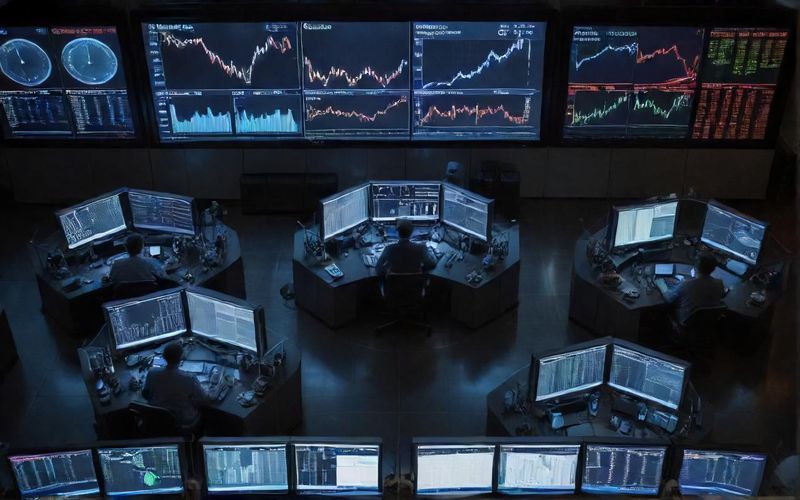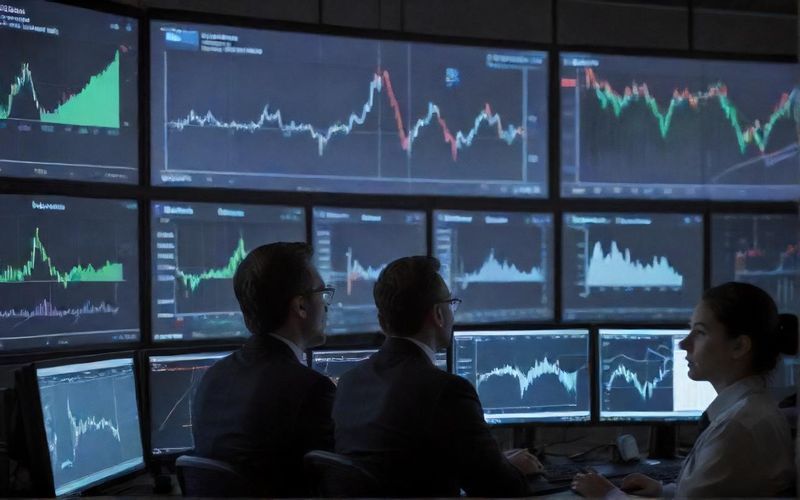AI Rally Stalls? Nasdaq Valuation Doubts Rise

This shift in sentiment isn't driven by a sudden downturn in corporate performance; in fact, many companies, especially in the tech sector, are still reporting strong earnings. The issue, as highlighted by industry leaders, lies in the stark disconnect between these impressive financial results and the stratospheric valuations that have been attached to their stock prices. It's a classic case of the market perhaps getting ahead of itself. The question now is whether the impressive gains seen this year are truly sustainable or if they represent an overinflated bubble, reminiscent of the dot-com era's cautionary tale.
Consider the case of Palantir. Despite delivering solid quarterly results, the company's shares have seen significant declines. The reason? Analysts and investors are increasingly scrutinizing its lofty price-to-earnings ratio. This isn't an isolated incident. It signals a broader recalibration, where even good news isn't enough to satisfy the insatiable appetite for growth that has become the norm. It's as if investors are waking up from a collective dream, blinking in the harsh light of financial reality and questioning if the sky-high prices are truly justified by the underlying business fundamentals.
This unease is amplified by other developments. The recent news that Norway's massive sovereign wealth fund will vote against Tesla CEO Elon Musk's record-breaking pay package, for example, injects a dose of reality into even the most celebrated figures in the tech world. When a major stakeholder expresses such significant opposition, it’s a clear signal that even the titans of industry are not immune to scrutiny.
Furthermore, the lingering shadow of a potential market correction, explicitly warned about by CEOs of major financial institutions, adds another layer of apprehension. These are not fringe voices; these are leaders who oversee trillions of dollars and have a vested interest in market stability. Their caution suggests that a pullback of 10% or more, while perhaps unsettling in the short term, might be a necessary recalibration to ensure long-term health.
The current market dynamics present a fascinating dichotomy. On one hand, the AI revolution continues to generate genuine innovation and promising applications, driving strong performance for key players. On the other, the sheer speed and magnitude of the gains have created a palpable sense of skepticism. It's a delicate balancing act for investors: to participate in the growth potential of AI without getting caught in a speculative frenzy.
As companies continue to release their earnings reports, and as the broader economic data, when available, paints a clearer picture, the market will undoubtedly face further tests. Will the AI-driven rally prove resilient, weathering any potential storms, or will the concerns about valuations lead to a more significant correction? The answer likely lies in the continued ability of these companies to translate their technological prowess into consistent, demonstrable profitability that can justify their current market standing. The coming weeks and months will be crucial in determining whether the optimism driving the current market is grounded in solid fundamentals or if it’s a fleeting illusion.








